Research Presentation Sessions: Imaging Informatics / Artificial Intelligence and Machine Learning
RPS 405 - Artificial intelligence (AI) in chest imaging: part 1
Lectures
1
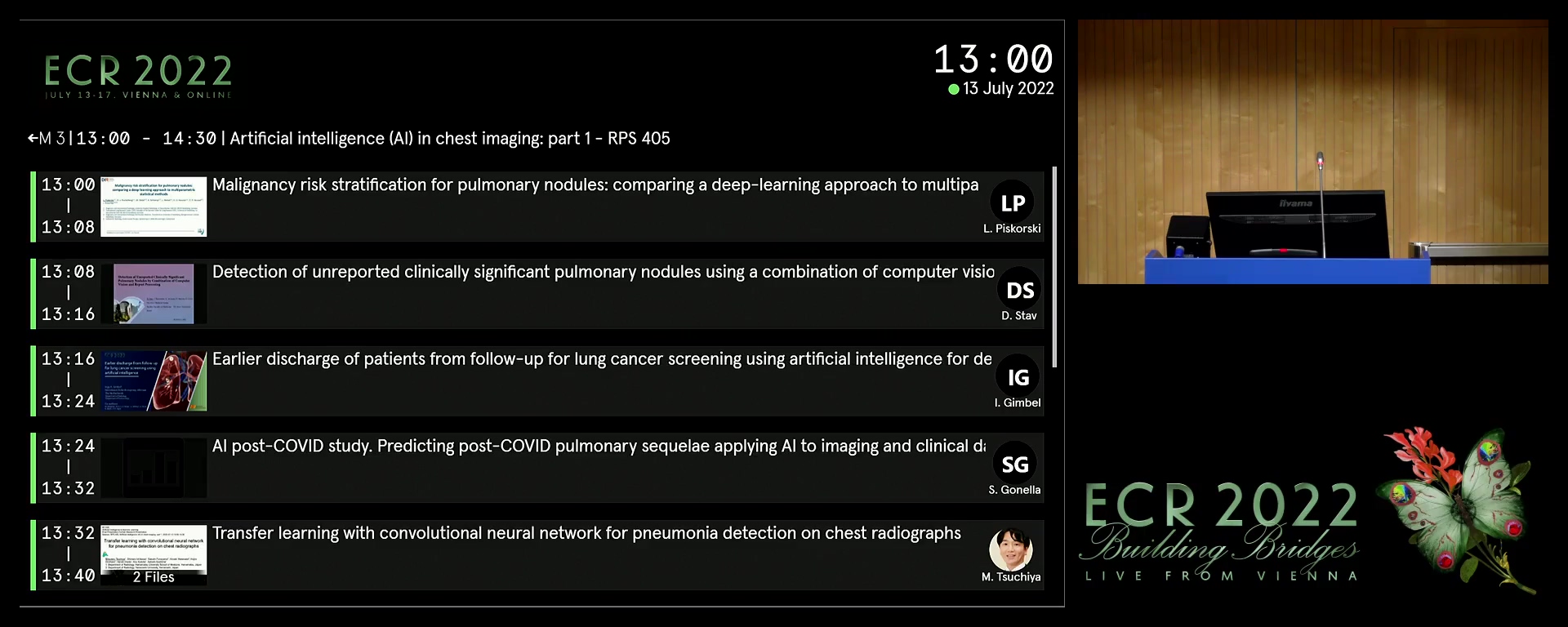
Introduction by the moderator
02:00Dag Wormanns, Berlin / DE
2
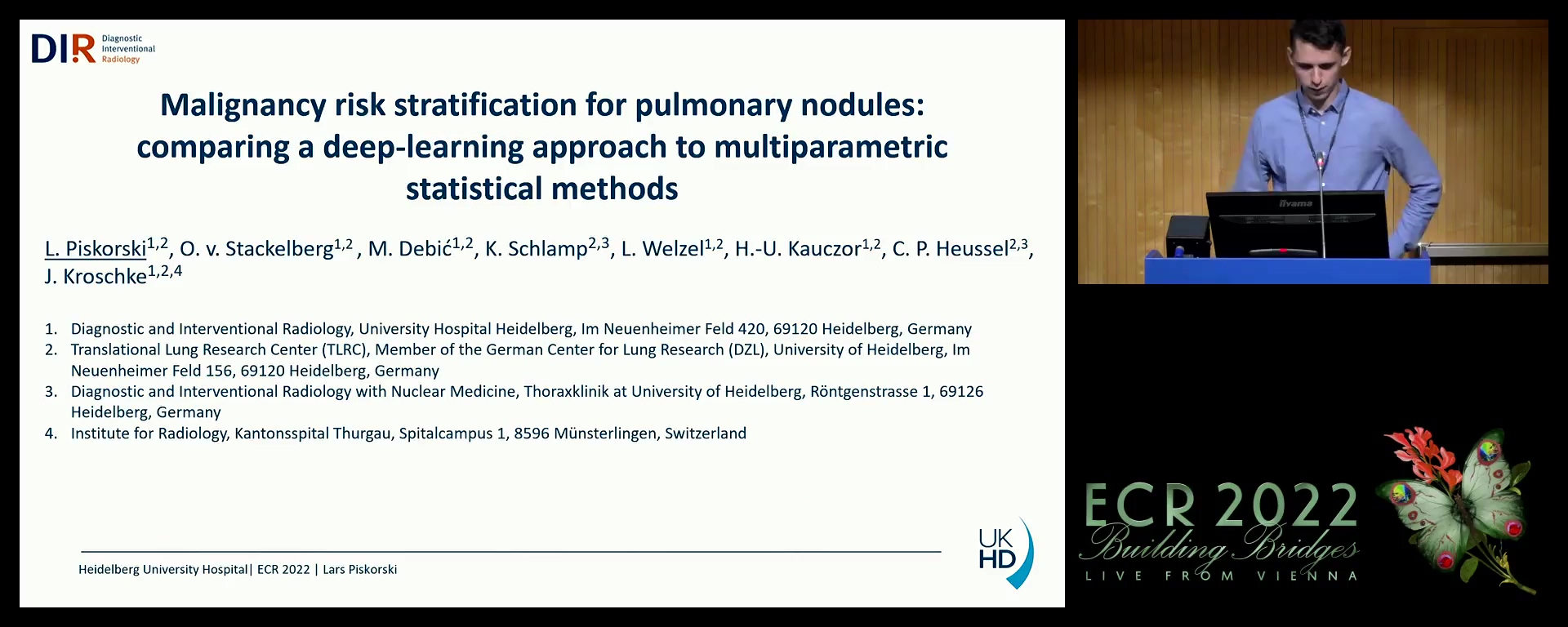
Malignancy risk stratification for pulmonary nodules: comparing a deep-learning approach to multiparametric statistical methods
08:00Lars Piskorski, Heidelberg / DE
3
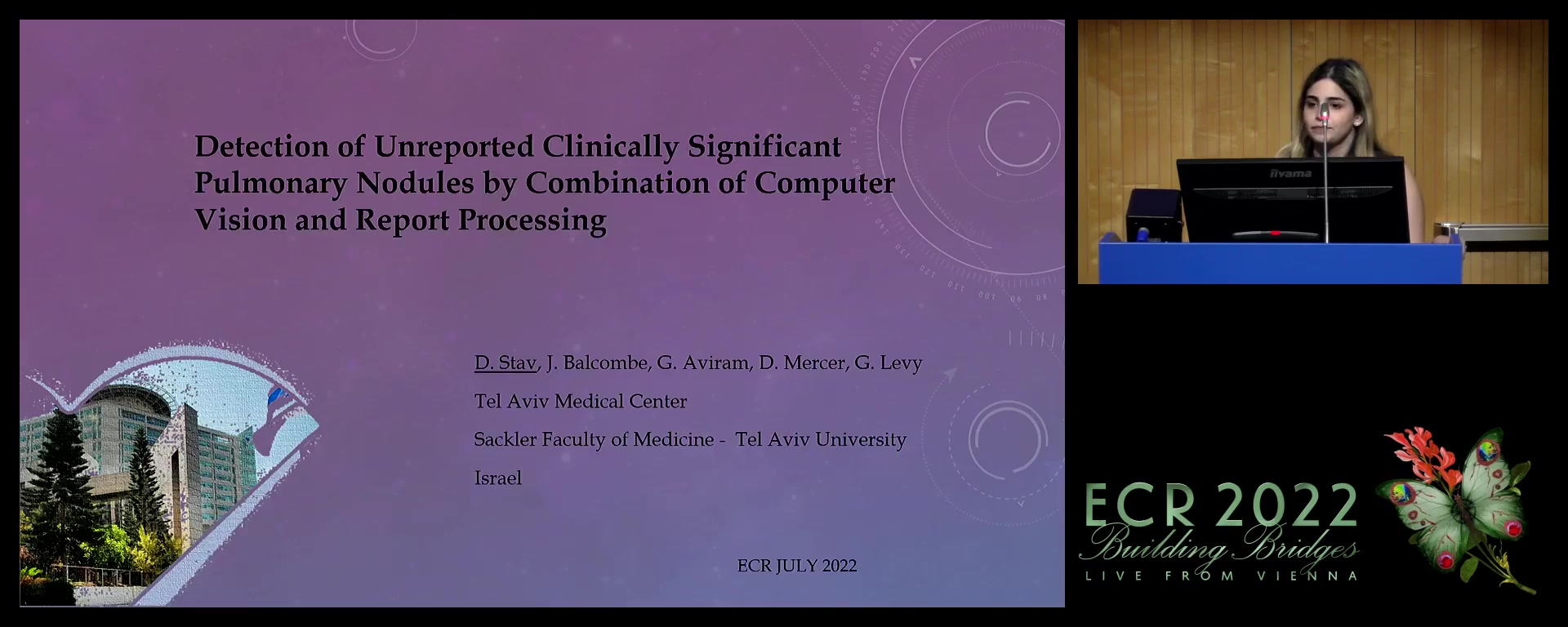
Detection of unreported clinically significant pulmonary nodules using a combination of computer vision (CV) algorithm and report processing
08:00Dana Stav, Tel Aviv-Yafo / IL
4
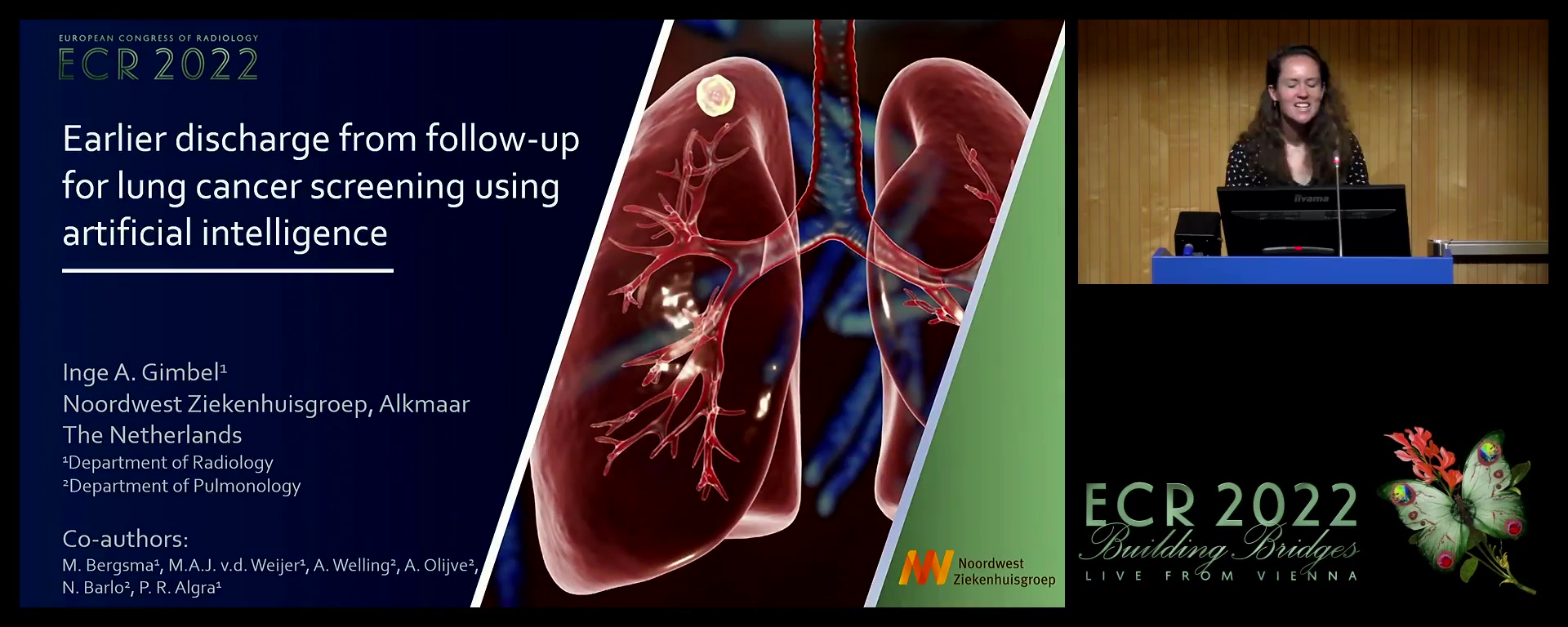
Earlier discharge of patients from follow-up for lung cancer screening using artificial intelligence for detection of pulmonary noduli on computed tomography
08:00Inge Gimbel, Utrecht / NL
5
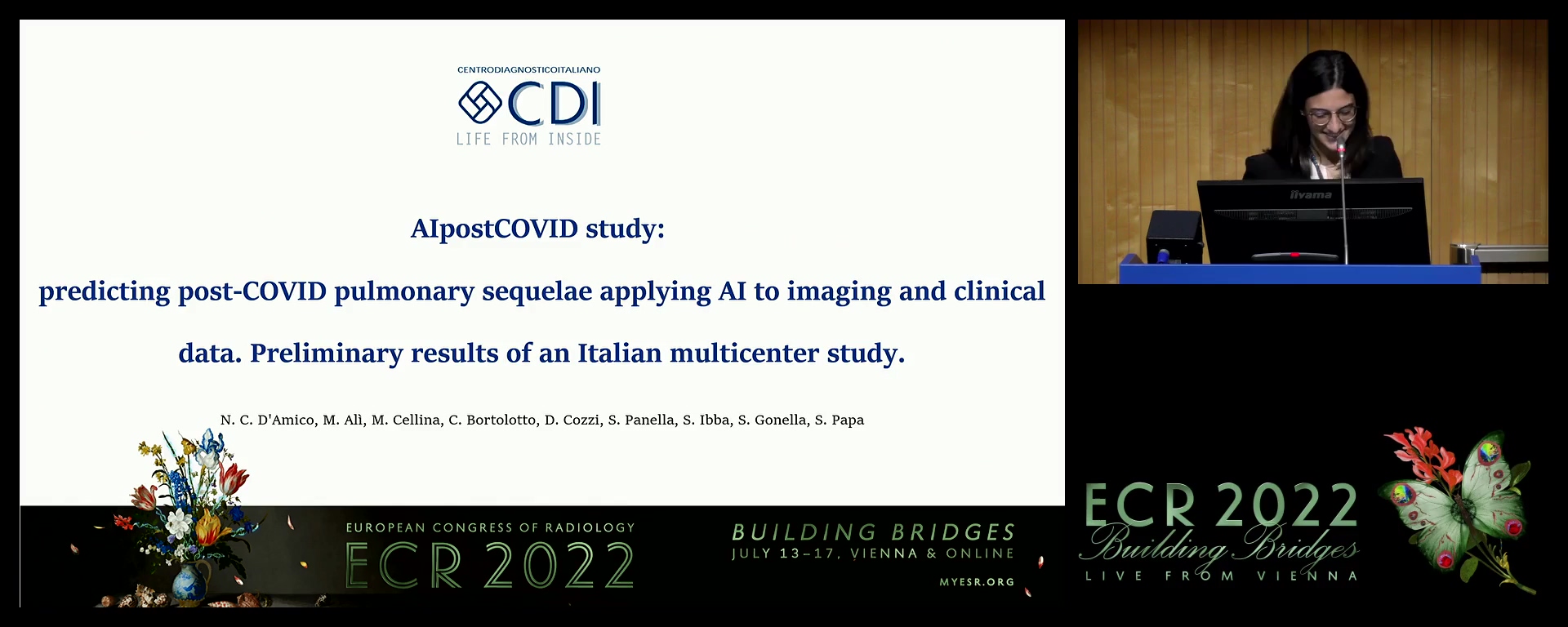
AI post-COVID study. Predicting post-COVID pulmonary sequelae applying AI to imaging and clinical data: preliminary results of an Italian multicentre study
08:00Silvia Gonella, Milan / IT
6
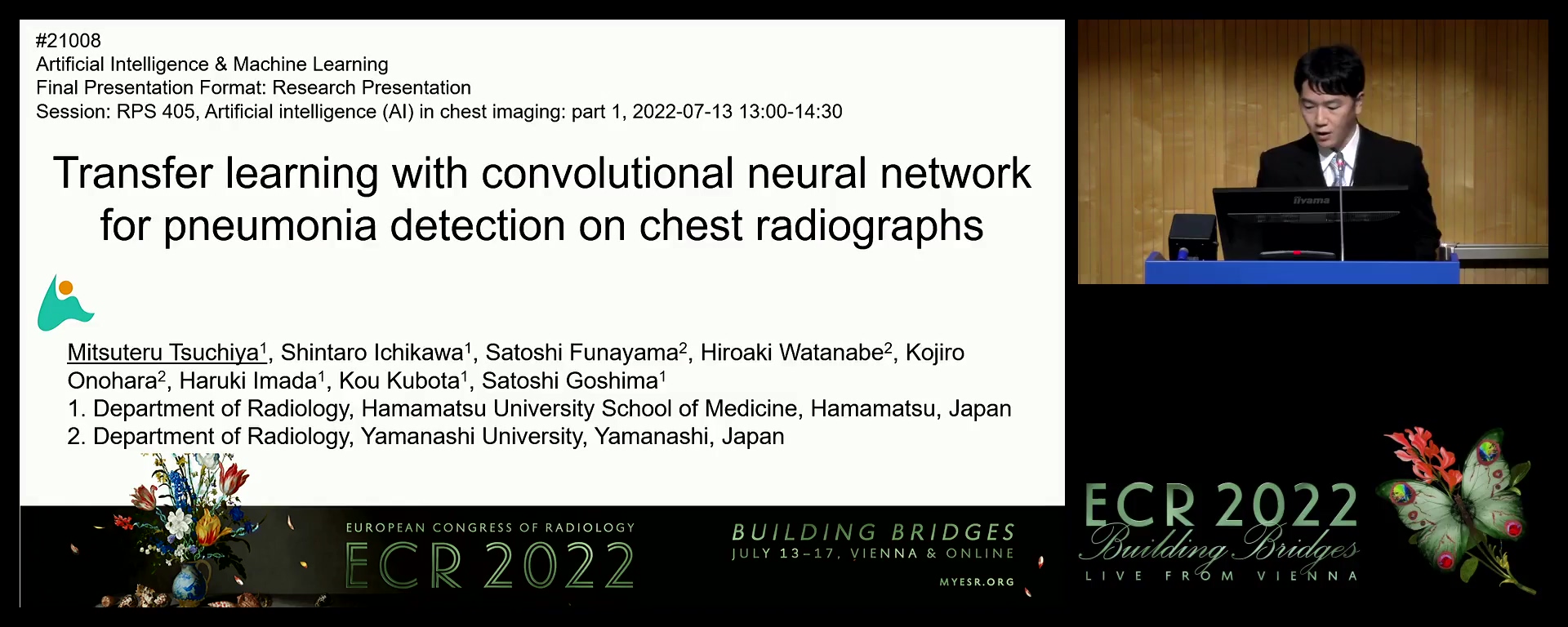
Transfer learning with convolutional neural network for pneumonia detection on chest radiographs
08:00Mitsuteru Tsuchiya, Hamamatsu / JP
7
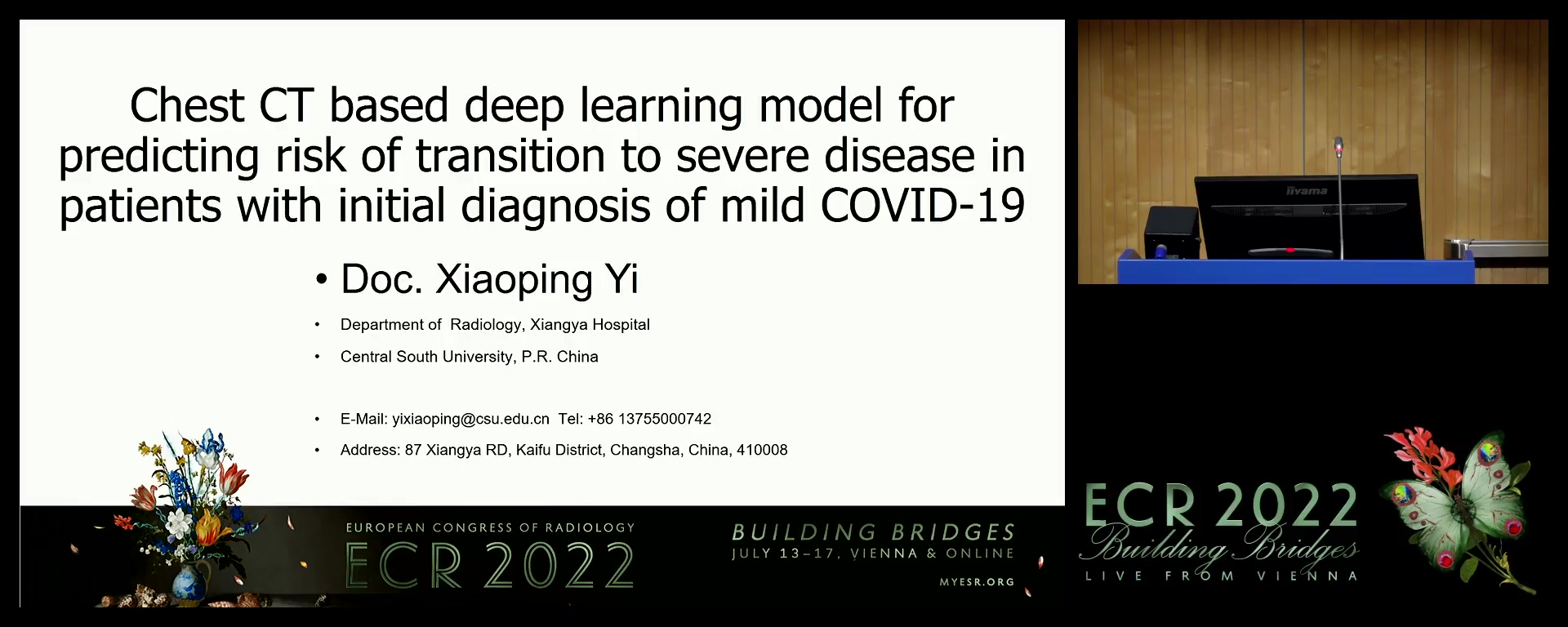
Chest CT-based deep-learning model for predicting risk of transition to severe disease in patients with initial diagnosis of mild COVID-19
08:00Xiaoping Yi, Changsha / CN
8
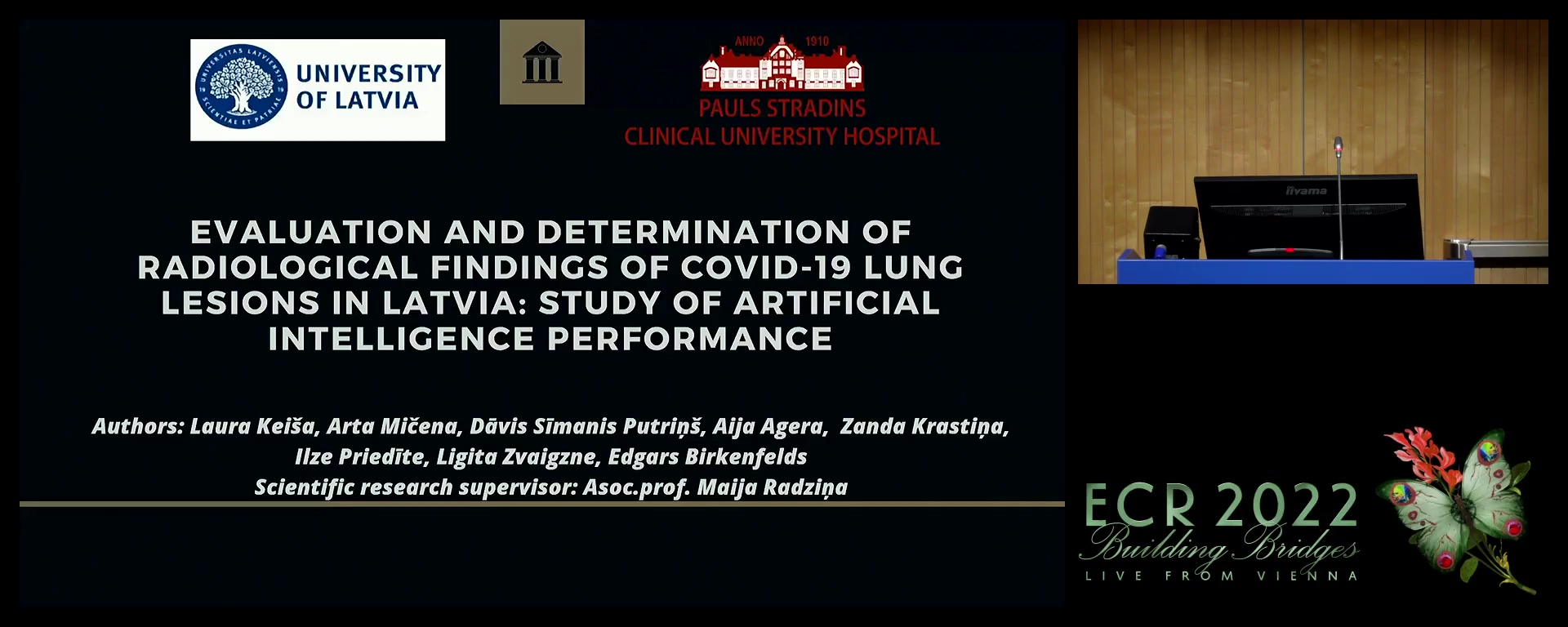
Evaluation and determination of radiological findings of COVID-19 lung lesions in Latvia: study of artificial intelligence performance
08:00Laura Keisa, Rīga / LV
9
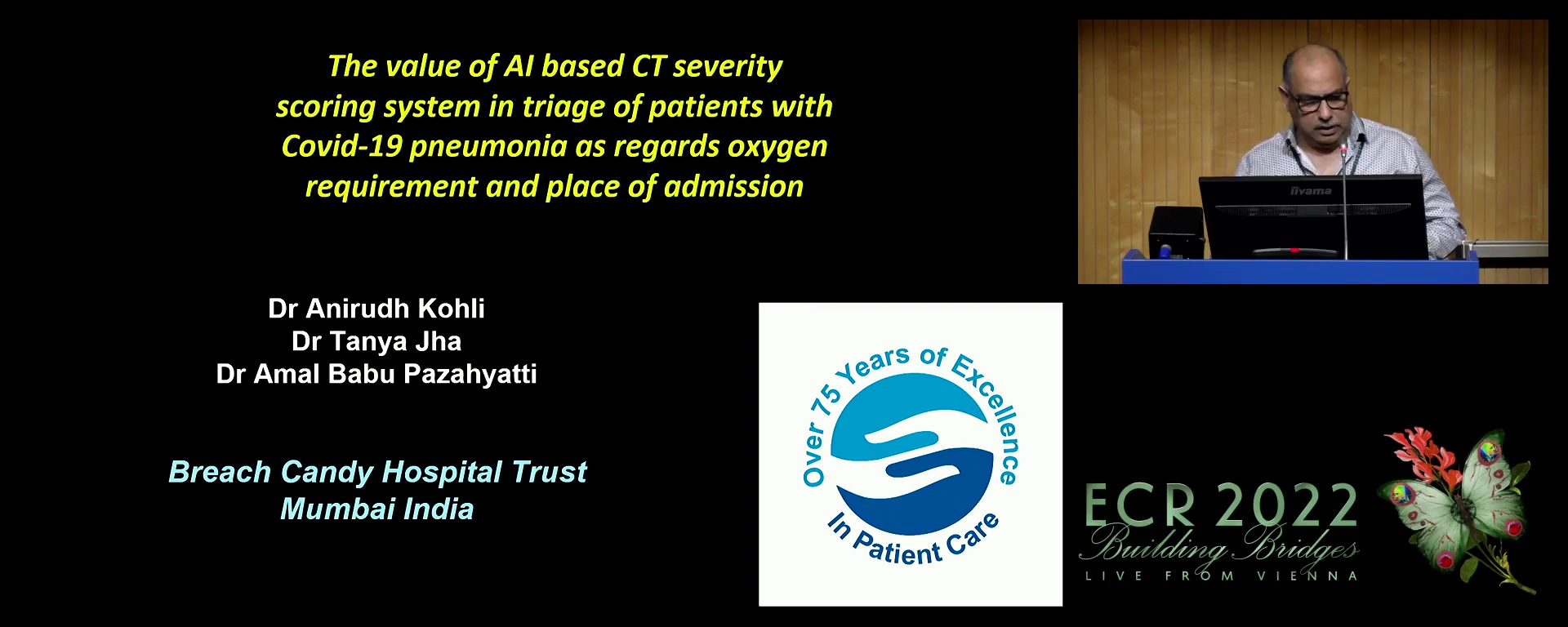
The value of AI based CT severity scoring system in the triage of patients with Covid-19 pneumonia as regards oxygen requirement and place of admission
08:00ANIRUDH KOHLI, Mumbai / IN
10
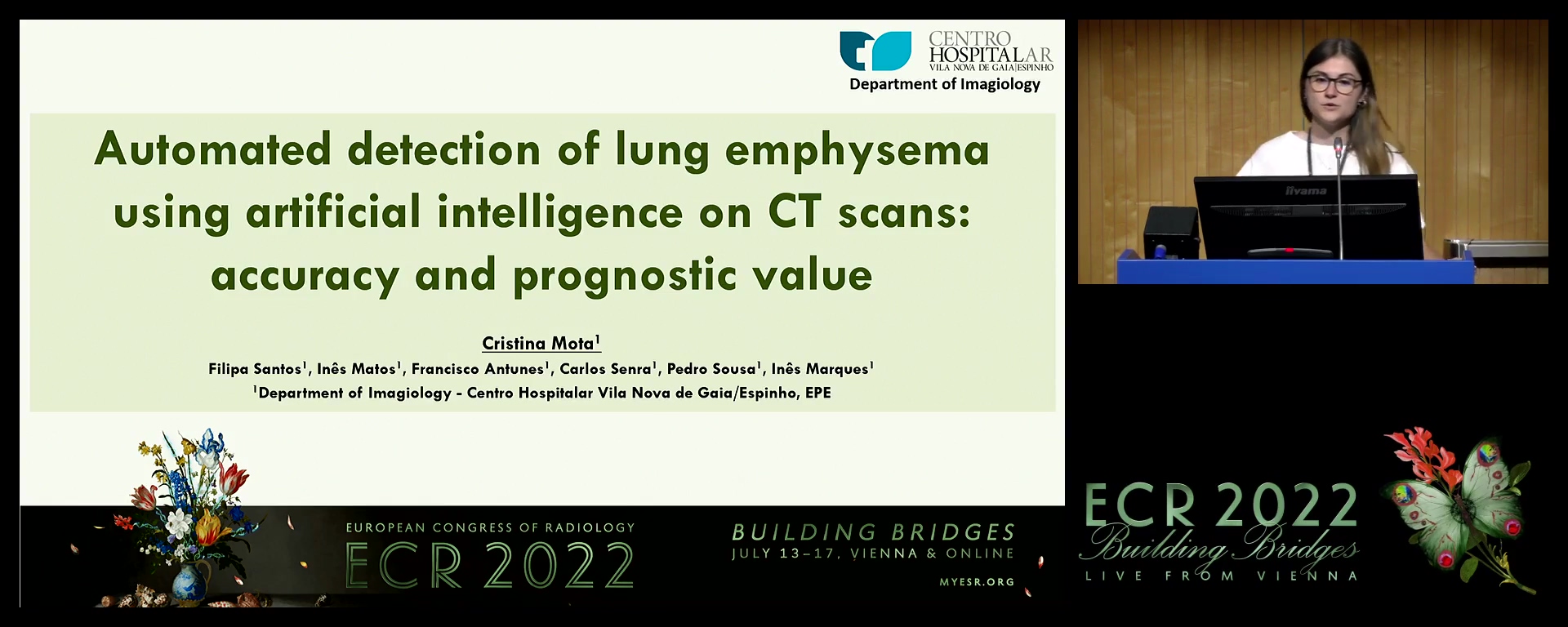
Automated detection of emphysema using artificial intelligence on CT scans: accuracy and prognostic value
08:00Cristina Mota, Lousada / PT
11
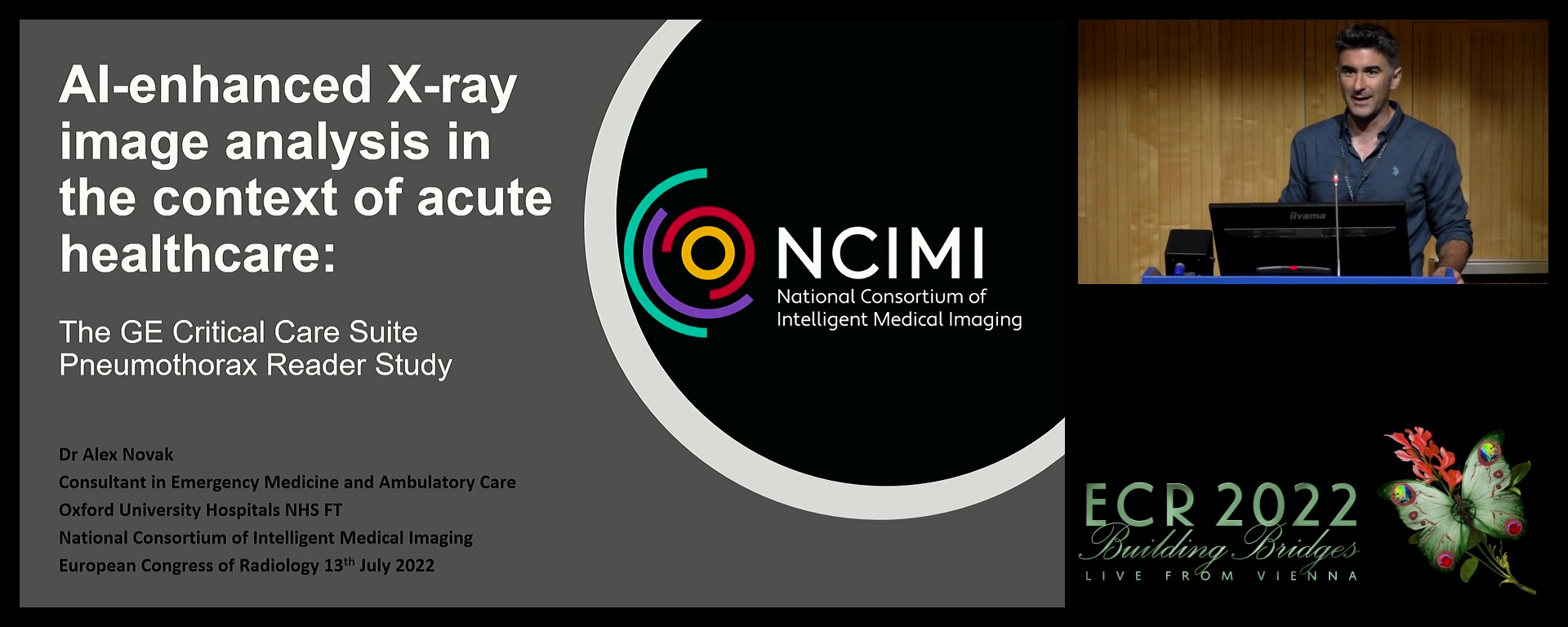
Measuring the impact of Artificial Intelligence-enhanced x-ray image analysis on the reporting performance of frontline clinicians: the GE critical care suite pneumothorax reader study
08:00Alex Novak, Oxford / UK